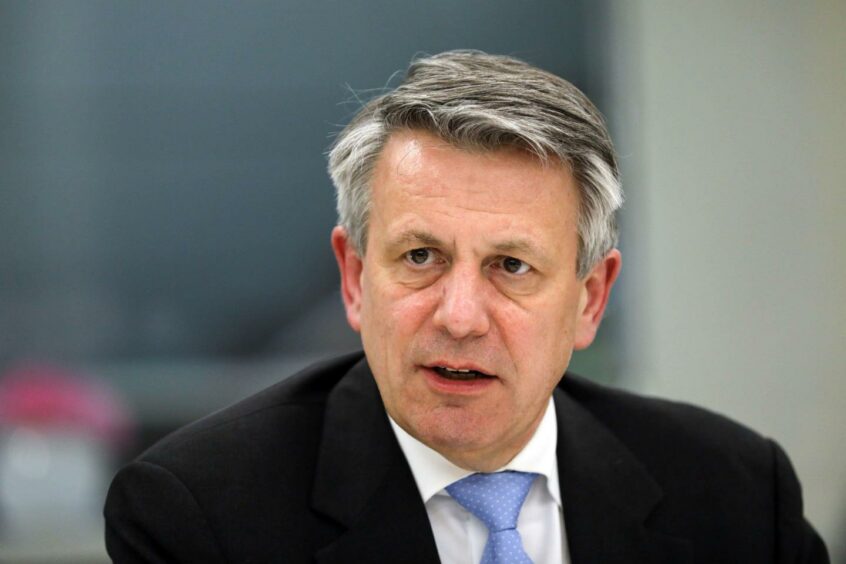
The chief executive of Shell has addressed whether the prospect of a North Sea windfall tax would damage the case for its planned £25bn investment in the UK.
During an investor call this morning, Ben van Beurden was asked whether Shell would change its mind on the proposals if a windfall tax was introduced.
“If there was a windfall tax in the North Sea, would that impact our plans for EV charging investments? I suppose not”, he said.
He added: “The point in general is that, yes, we have a very strong conviction to invest in the UK and, yes, these plans will have to make economic sense when they come to making the investment decision on the day.”
It was revealed in March that Shell intends to spend up to £25 billion in the UK energy system this decade.
Around 75% of the spending is earmarked for low or zero-carbon energies, which is a “very firm plan that we want to carry out,” Mr van Beurden said.
“I should also say that if we’re talking about these types of investment levels they do require a stable and a predictable financial outlook. It does require stability of policies and everything else.
“It’s not as if we can already, now, predict how these investments are going to look like.”
Questions are again being raised on the prospect of a North Sea windfall tax after Chancellor Rishi Sunak said the option is still on the table if firms are shown not to be investing in the North Sea.
It’s not clear how the UK Government would impose such a tax, and which companies would be liable.
According to research from Offshore Energies UK (OEUK), firms will spend some £200bn – £250bn through to 2030 in a bid to drive new energies, protect domestic supply and stave off such a tax.
Shell to pay ‘hundreds of millions’ in tax
Revealing the firm’s bumper first quarter results today, chief financial officer Sinead Gorman said the oil giant expects to pay “hundreds of millions in the UK in the years to come”.
Shell posted record quarterly earnings of £7.2 billion amid a rise on oil and gas prices, and Mr van Beurden said he was “acutely aware” of the hardship customers are facing as fuel costs increase.
Some of the controversy around windfall taxes has stemmed from disinformation on decommissioning tax rebates – Shell has received hefty rebates on its liabilities in recent years, leading to some periods where it has effectively paid no tax in the UK.
However decommissioning rebates are correcting a tax positive position where oil firms have overpaid during the decades of production on UK oil fields. They are only claiming rebates now as they arrive at decommissioning; a cashflow issue for the Treasury, rather than a net loss.
Tessa Khan, director of campaign group Uplift, said: “It’s beyond time we stood up to companies like Shell and demanded more.
“We need to recognise that oil and gas companies, like Shell, make us all poorer – from soaring energy bills to the impact they are having on our planet. A windfall tax should be the absolute bare minimum we demand.”
Mr van Beurden pointed to hardship measures in place for retail customers, but said that “more energy and clean energy” production is the real contribution firms like Shell can make.
In the North Sea, that means “starting up Pierce, bringing on Jackdaw as a project, Penguins, etc,” he said.
“All these things will help bringing new supply into the UK in this particular case and therefore alleviating market conditions.”
UK results?
Ms Gorman was asked on the call about the potential to break out its UK figures from the global results, giving a clearer picture of the case on a UK windfall tax or not.
Although she claimed Shell has been “very transparent” on its UK commitment, the prospect of revealing the specific figures for its business in Britain appeared to be shut down.
She said: “What is important for us is to make sure that we have a stable approach, a stable investment strategy that allows us to continue to invest in the country.
“That’s why we’ve been very transparent about our commitment in the UK, about our intent to invest up to £25bn in the UK this decade and that’s very important to us in the investor climate that we’re in around that.
“In terms of the ability to break that out, in terms of sharing the results, we’re in an awful lot of countries so to be able to do so is quite complicated and, of course, we’ve got a lot of partners that we would have to take into account as well.”
Recommended for you


 © Supplied by Shell
© Supplied by Shell